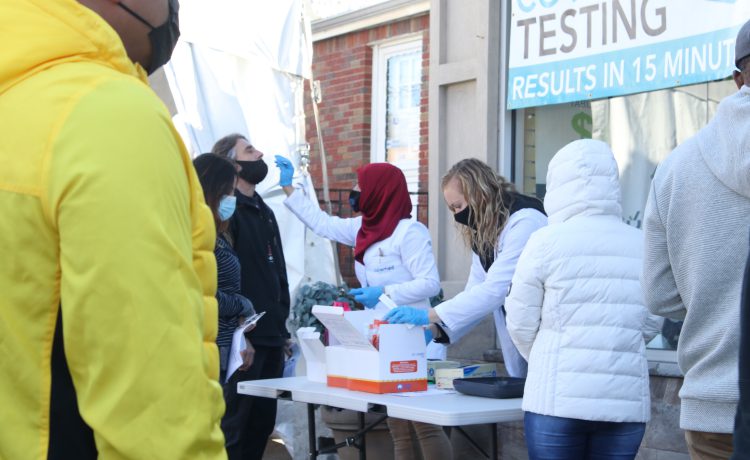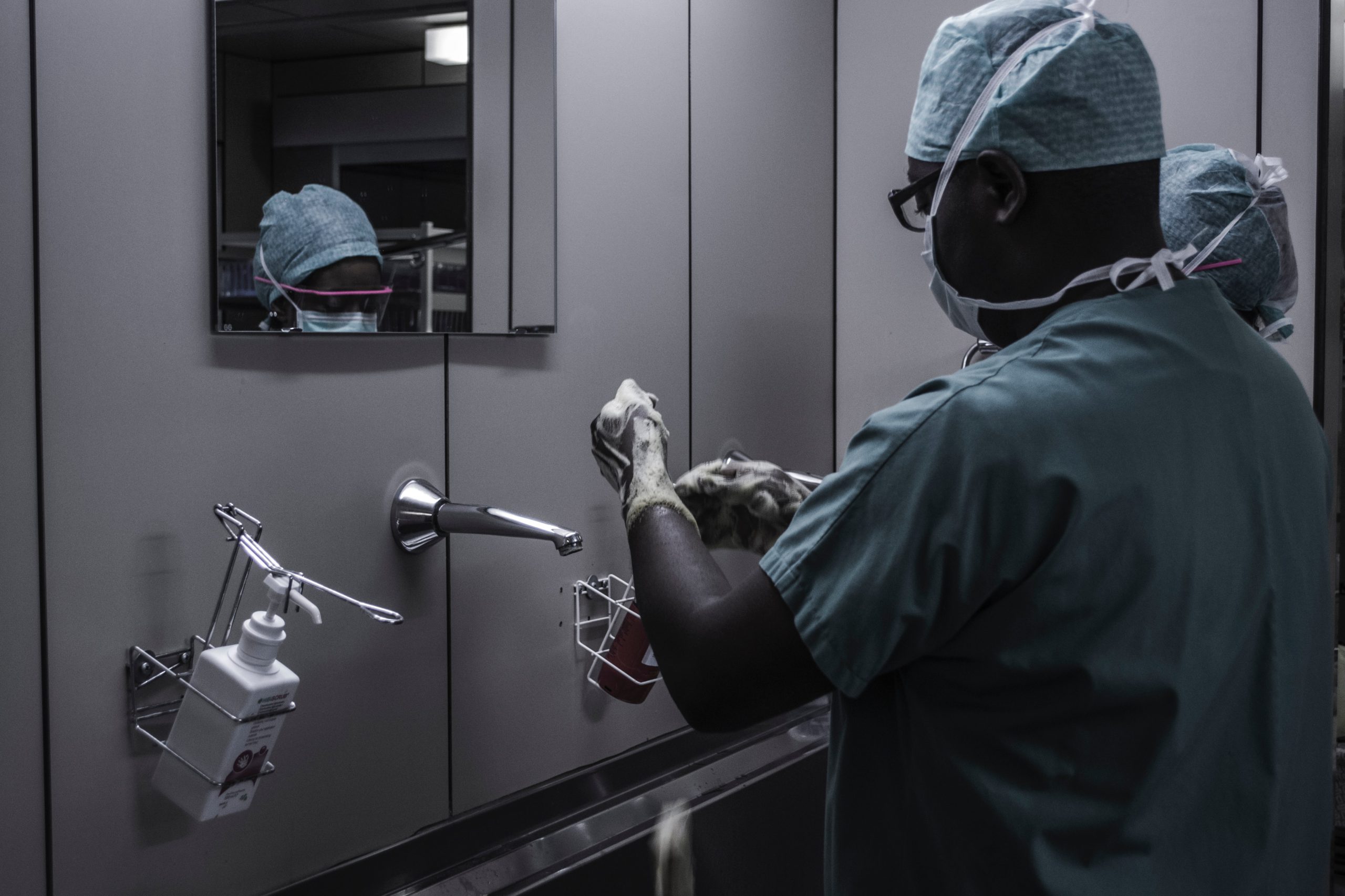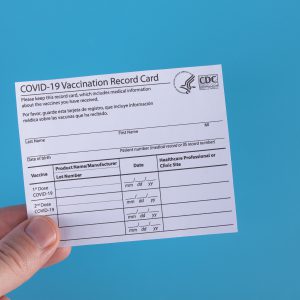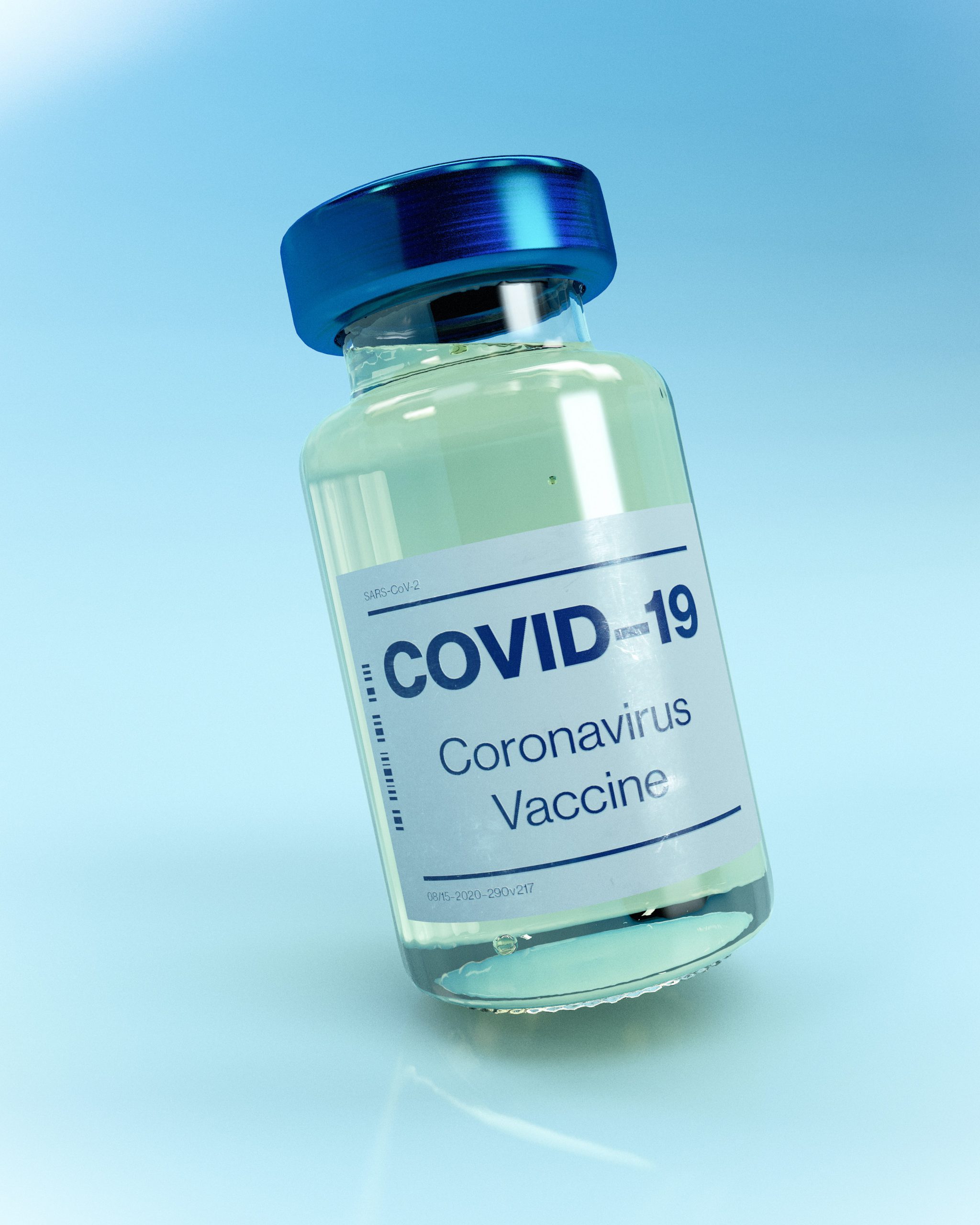Last Updated on November 4, 2021
This article originally appeared on BeMedWise. An up-to-date version can be found here.
Periodic screening for COVID infection is one of many proven ways to reduce the spread of COVID-19. Unfortunately it is underutilized.
Although vaccine mandates have become part of many workplaces, there are still those who will not accept vaccination. Periodic COVID testing has become the alternate choice, although predominantly done using a test that takes at least 24 hours to get the results, during which time the person could potentially be spreading the virus. The typical testing interval is a week, although some companies such as FOX news, are mandating daily testing.
One problem with the current approach to COVID testing is that it is predominantly reactive in nature. Testing for the SARS-CoV-2 coronavirus is being done on people with COVID-19 symptoms, but it has not been consistently used as part of a comprehensive plan to reduce the spread of COVID infections.
That is beginning to change, starting with recent federal mandates that employees either get vaccinated or undergo COVID testing at least weekly, whether or not they have symptoms. These mandates currently apply to those who work at federal agencies, government contractors, companies with 100 employees or more, emergency medical services (EMS) and ambulance agencies, and nursing homes, hospitals, dialysis facilities, ambulatory surgical settings, home health agencies that get payments from Medicare and Medicaid. Many individual states and cities are creating these mandates for their employees. Some companies, facilities, universities, and K-12 schools not covered by the federal mandate are also requiring vaccination and/or periodic testing for their employees, unless prohibited by state or local regulations.
While there are tests for antibodies against COVID that can indicate that someone has had COVID disease or vaccination in the past, they are not an accurate way to determine protection and do little to prevent the spread of COVID virus.
Another potential problem with this approach is that the recommended test to detect those infected with COVID is the PCR test. This test takes at least 24 hours to come back, during which time the virus may be spreading if the person is infected and not taking proper precautions.
Other countries who are having much more success containing COVID infection despite only having moderately higher vaccination rates are using the rapid COVID antigen test. The federal government has recently committed to spending nearly $1.2 billion to purchase 187 million rapid COVID-19 tests, although it may be a while before they are readily available.
Although they are slightly less accurate and will miss some people with COVID infection, the results are available before the person being tested can spread the infection, usually within an hour. There are even FDA approved home testing kits that can further reduce any spread that occurs when someone goes to a testing site. While the experts recognize that infections that are undiagnosed due to the limitations of the rapid test are a problem, the number will be small. Most of them agree that there will be much more spreading of COVID virus from infections that will go undetected due how difficult it can be to get the PCR tests and the need to wait 24 hours or more to get the results.
There is much more we can do to reduce the spread of COVID-19 infection. COVID vaccination is the most effective way of doing this, but increasing use of facemasks and COVID testing to detect those with COVID infection can contribute to reducing the spread. COVID screening will be most effective if we become more proactive about identifying COVID disease in those who are at high risk by not being vaccinated before they have had a chance to spread the virus. While switching to Rapid COVID testing may not identify a few with COVID infection, the benefits of rapid testing being more accessible and giving results in less than an hour significantly outweighs the risk of those with COVID infection going undetected for a day or more.
The NeedyMeds website has a database of over 100 nationwide resources for those who have been impacted by COVID-19. For those looking for information on receiving a coronavirus vaccine, all adults and children over 12 years old can receive the vaccine free of charge. There may be options for children ages 12-18 to get vaccinated even if their parents don’t grant permission. Search online for your state’s requirements, area’s locations, and appointment availability.





